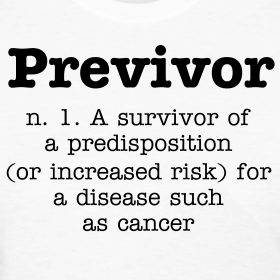What happens if you test positive for the breast cancer gene?
If you carry the BRCA-1 or BRCA-2 gene mutation, your doctor or genetic counselor will present you with several options:
- Surveillance: You’ll need a clinical breast exam every six months, and a mammogram and breast MRI once a year. The hope with this approach is that if there’s subsequent evidence of breast cancer, it will be caught early.
- Surgery: A second option is to obtain a preventative or prophylactic mastectomy to significantly reduce your risk of ever getting breast cancer. (On average, 60% of people testing positive for BRCA-1 or BRCA-2 will be diagnosed with breast cancer in their lifetime. Having a preventative mastectomy brings that number down to 10%.) Women may also elect to have their fallopian tubes and ovaries removed before or after menopause to drop their risk of ovarian cancer to 10%. Those surgeries also reduce a pre-menopausal woman’s chance of getting breast cancer in half.
- Medicine: The birth control pill reduces a woman’s chance of developing ovarian cancer. However, that benefit will need to be weighed against an increased risk of getting breast cancer in those BRCA-positive women who take the pill for more than five years. The drug, tamoxifen, has also been shown to drop breast cancer rates in half for women with increased risk.
(The above options are described in greater detail on the Mayo Clinic website.)
Whichever path you choose, your doctor or genetic counselor will help you broach the subject with family members who might need to be tested. For those of you who test positive for BRCA-1 or BRCA-2 and are looking for more information or support, check out FORCE (Facing Our Risk of Cancer Empowered). In 2000, FORCE coined the term, “previvor."

If you are unsure if you have an increased risk of heredity cancer, you can take this short quiz. The questions can spur discussion with your relatives about family health history, and the answers are worth reviewing with your doctor.
It’s important to remember that testing negative for BRCA-1 or BRCA-2 doesn’t mean that you won’t get breast or ovarian cancer. (I’m proof of that.) Whether or not you have breast cancer in your family, remember to perform monthly breast self exams, get a clinical breast exam once a year, and talk with your primary care physician or gynecologist about when you should start getting annual mammograms.